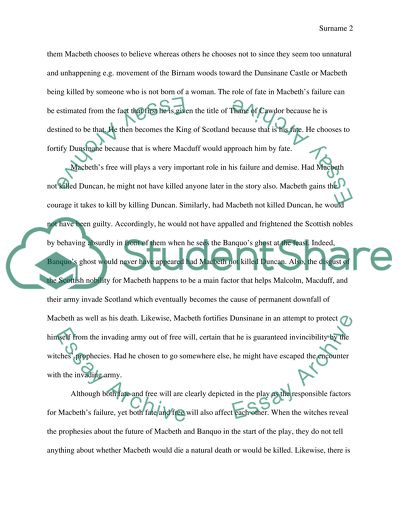Cite this document
(“Macbeths Failure: Fate or Free Will Research Paper”, n.d.)
Retrieved from https://studentshare.org/literature/1469074-macbeths-failure-fate-or-free-will
Retrieved from https://studentshare.org/literature/1469074-macbeths-failure-fate-or-free-will
(Macbeths Failure: Fate or Free Will Research Paper)
https://studentshare.org/literature/1469074-macbeths-failure-fate-or-free-will.
https://studentshare.org/literature/1469074-macbeths-failure-fate-or-free-will.
“Macbeths Failure: Fate or Free Will Research Paper”, n.d. https://studentshare.org/literature/1469074-macbeths-failure-fate-or-free-will.


